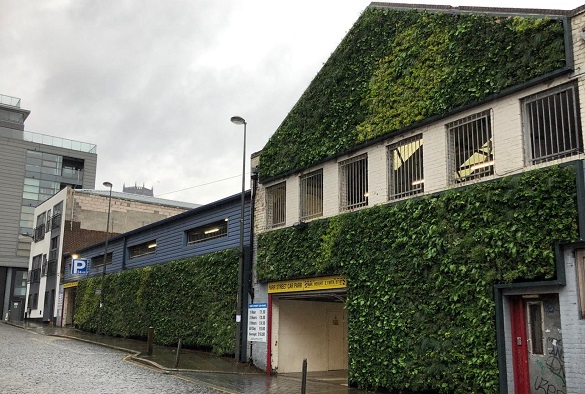
Staff and students from the University's Department of Geography & Planning have been providing their expertise and support to Urban GreenUP, a city-wide project that seeks to increase the amount of green spaces, improve air quality and support health and wellbeing.
Despite the COVID-19 lockdown, the project has manged to complete a number of projects including the installation of 'living green walls' on the exterior of St Johns Shopping Centre and on Parr Street car park.
Lecturer in Environmental Planning and Management, Dr Sarah Clement is principal investigator for the University of Liverpool's part of the Urban GreenUP project and has provided advice and support, including monitoring the impacts on the community and environment.
The green wall on the exterior of St Johns Shopping Centre is 65 metres in length, one of the longest in the UK. It is filled with over 14,000 evergreen plants, and encourages bees and other pollinators, whilst making the city centre greener and more environmentally sustainable.
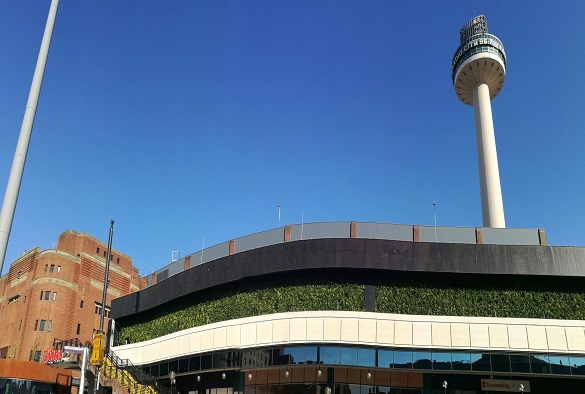
Over the summer the Centre is planning to install beehives on its roof to create 'bee-lanes' which will provide a shelter for bees and other pollinators in the city centre.
The front of Parr Street Car Park in the Ropewalks district has also had a 'living wall' installed consisting of 132 square metres of plants and flowers including daffodils, lavender and even wild strawberries for passers-by to pick when they start to fruit.
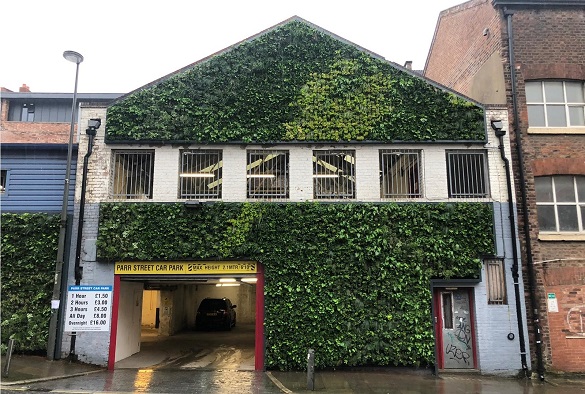
Other new developments include a new Floating Ecosystem located at Wapping Dock. Launched last week, the Floating Ecosystem integrates elements of salt marsh and estuarine ecosystems. It consists of an island planted with native estuarine plants in an exploration of the integration of floating ecosystems in saltwater docklands.
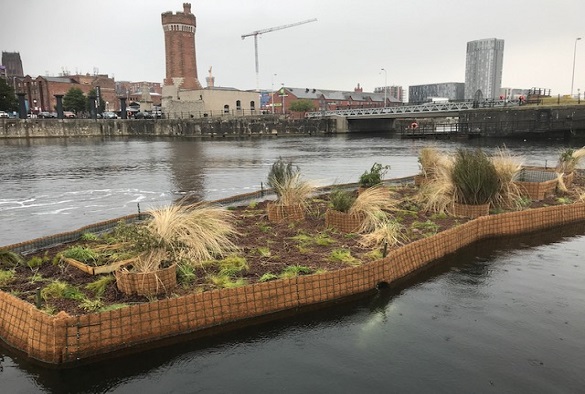
It utilises unique 5D Planting System and features multiple habitat types including elevated feature planters, lined rainwater catchment planters, submerged shallow gravel pools and submerged fish refuge structures from Ecocean.
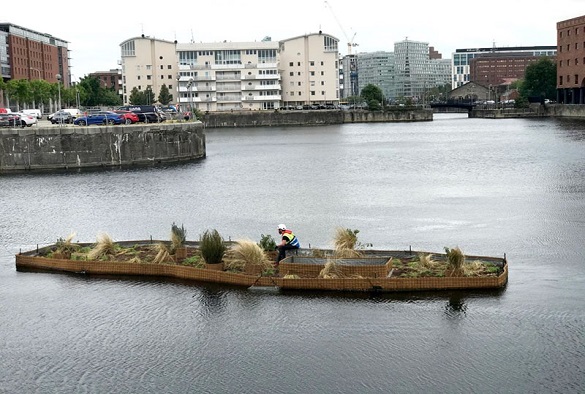
Floating gardens have been installed at Sefton Park Lake to help the quality of the water and increase biodiversity on the lake.
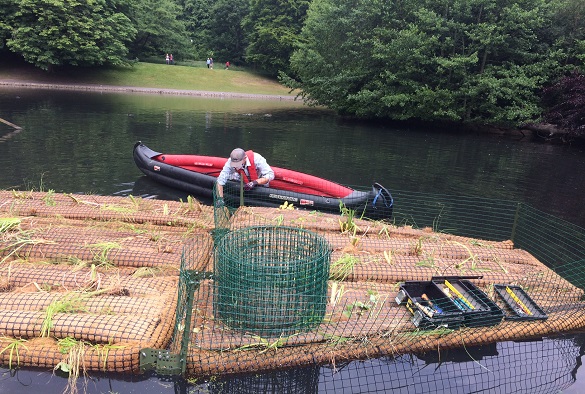
Dr Sarah Clement said: "It has been rewarding to be part of this project to increasing Liverpool's green infrastructure. Unfortunately, due to the COVID-19 pandemic and lockdown, our students haven't been as able to get involved as they would normally, but I still have five masters students looking at the project's impacts. Soon we will be developing an app to allow students and others in the community identify, record, and engage with nature as well.
"Urban GreenUP is an innovative project to encourage wildlife back into the city centre, help clean the air and give everyone something wonderful to look at whilst boosting environmental, social and economic benefits. And an important related aspect is monitoring how nature will respond to this new habitat in the city centre."
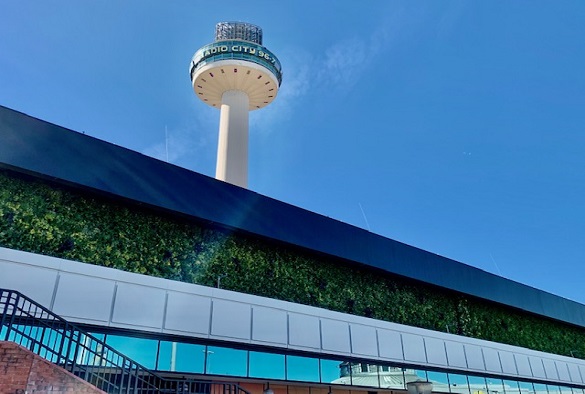
Supported by the EU Horisizon programme, the Urban GreenUP Project is exploring the effect of how urban greening can help resolving a wide range of urban challenges, including air pollution, biodiversity loss, climate change, human health and well-being.
The five-year project involves is a partnership between the Liverpool City Council, Mersey Forest and the University of Liverpool, with the support of Liverpool BID Company, as well as organisations in Valladolid (Spain) and Izmir (Turkey) and five other cities across the world.






